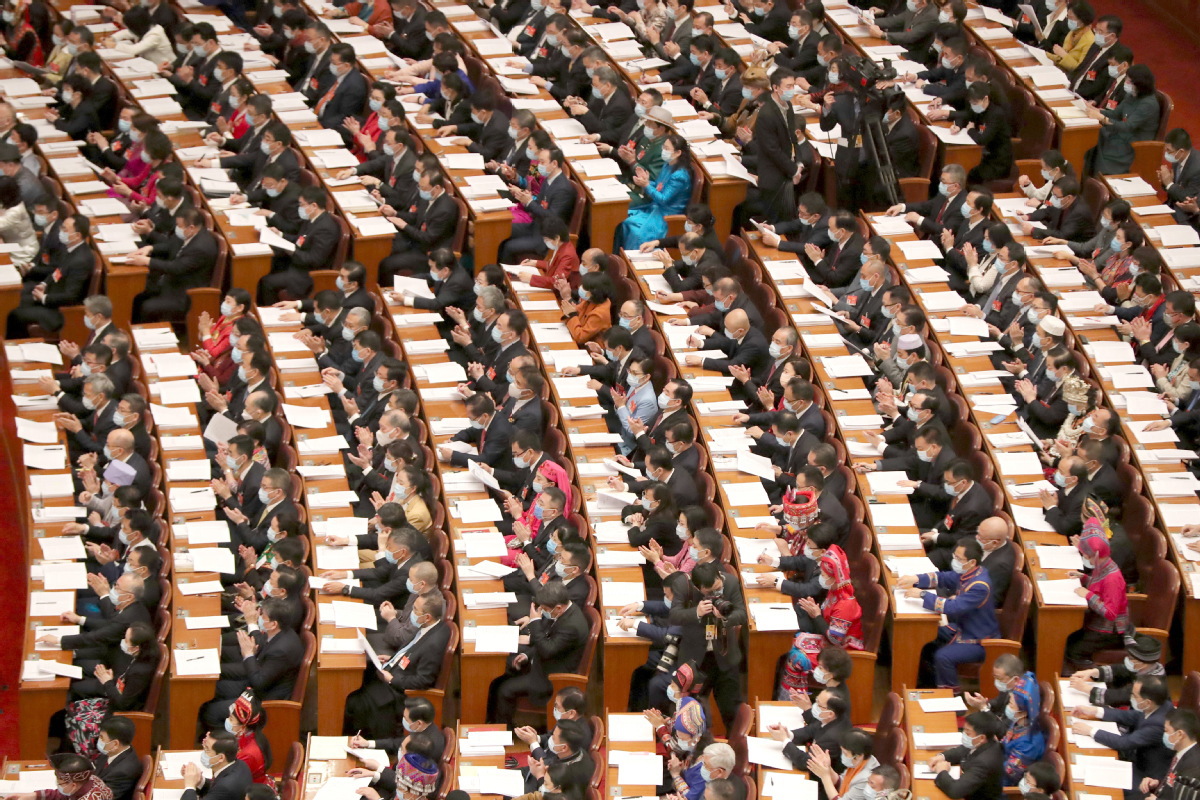China lauded for its global take on issues


Nations resistant to multilateralism have caused new polarity, expert says
China's consistent efforts to build a community with a shared future for mankind "are just to supplement the existing mechanisms of multilateralism", said Indian scholar Karori Singh.
Such endeavors, expected to be highlighted at the annual two sessions, "should not be perceived as a challenge to the existing order", said Singh, the emeritus fellow and former director of the South Asia Studies Centre at the University of Rajasthan, who praised China for helping to uphold the principle of multilateralism.
He noted that Yang Jiechi, a member of the Political Bureau of the Communist Party of China Central Committee and director of the Office of Foreign Affairs Commission of the Communist Party of China Central Committee, has rightly reaffirmed that "China will firmly uphold and practice multilateralism and make new and greater contributions to building a community with a shared future for mankind and promoting world peace and development."
Such a stance will likely be further discussed during the ongoing annual sessions of the National People's Congress and the Chinese People's Political Consultative Conference National Committee.
The COVID-19 pandemic and the subsequent race to develop vaccines and equitably distribute them worldwide have relegitimized multilateralism as an effective instrument of global governance to attain social justice, world peace and prosperity, Singh said.
He noted that experience has shown that some nations are attempting to exert their influence on the pretext of enforcing certain values, and thus, there is a voice of resistance in some parts of the world. According to Singh, countries like China and India are unequivocally supporting multilateralism regardless of bilateral differences.
"They are also devising new, if not alternative mechanisms of reinforcing multilateralism" through groups such as BRICS (Brazil, Russia, India, China and South Africa), the Shanghai Cooperation Organisation, the Asian Infrastructure Investment Bank and the New Development Bank, Singh said.
China is working to bolster the development and contribute to the prosperity of developing countries through its Belt and Road Initiative, he said.
Resistance by developed countries has generated new friction in the emerging world order, he added.
Such friction was exacerbated during the last presidential administration in the United States. During that time, the US attempted to withdraw from multilateral efforts, which hurt its national interests more than it hurt other countries, Singh said.
The US' stance created "a new kind of polarity in the world order, which prevented the global community from exhibiting solidarity in facing the pandemic," he added.
Singh pointed out that multilateralism is gaining global support, and a consensus is being built around it for realizing universal goals of an inclusive and sustainable world order. He also praised UN Secretary-General Antonio Guterres for often advocating "reinvigorated, inclusive and networked multilateralism" as an effective instrument to address the problems of fragility in the fractured world order.
Efforts made by US President Joe Biden to rejoin multilateral agencies are indicative of the strength of multilateralism in today's world, he said.
Singh said he believes that other countries must also make multilateral commitments similar to China's and contribute to the principle to serve their own interests as well as that of a judicious world order.
"Everyone stands to gain by resetting institutions and pursuing policies that recognize multilateralism as the new normal," he concluded.





































